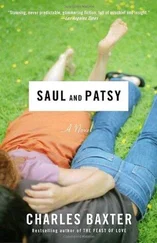—
She walked back to her hotel, trudged up to her room, undressed again, and put on her nightgown. Maybe this time she’d find a hour or two of sleep. Almost as soon as her head touched the pillow, she entered a dream of astounding specificity: she was sitting in a slightly dingy living room in Eastern Europe, lit with four candles in pewter candleholders. To her left was a small sturdy wooden dinner table set for two, and in front of her was a fireplace in which the coals appeared to be dying. The room had a smoky and unclean smell. A mongrel dog sat to her right and barked once at her, as if the dream could now commence. It was like a film director shouting, “Action!” Amelia knew, without knowing how she knew, that she had found herself in Imyar Sorovinct’s home and that the poet’s wife stood off to the side, just out of sight, preparing a meal. In front of her, sitting in another chair, was Imyar Sorovinct.
The poet held himself up with straight soldierly posture, like a veteran in a wheelchair, but his face betrayed him: his left eye, lower than his right, looked at Amelia with patient compassion, while his right eye gazed on indifferently, as if two separate selves were housed within him. His uncombed hair rose wildly from the back of his scalp, and his large ears stuck out from his head like jug handles. He was a very homely man with no appealing features. His hands trembled as they rested on his thighs. The expression on Sorovinct’s face was one of scrupulous interest dimmed by time-distance and dream-distance, both of which were causing him to disintegrate.
Amelia waited for him to speak. When he said nothing, she told him, in his native dialect, “My name is Amelia, and I…”
“I know who you are,” Sorovinct told her in perfect English. “You’ve been trying to translate ‘Impossibi  lity.’ ”
lity.’ ”
“You do? Well. Then you know that I can’t get anywhere with that poem.”
“And you never will,” Sorovinct told her. “You’ll never get that one right. You’ll just have to give it up.”
“I hate to. I’ve spent so long on it.”
“Too bad,” Sorovinct said, rubbing his chin. “Just forget it.” He picked up his book of poems from the floor and opened it in front of her. “There’s something I want you to do,” he said. He pointed at a page, where a poem entitled “Forbearance” appeared. “This is the poem you should be translating. It’s more compatible with you. And the tone? Much easier. You’ll manage this one in no time, believe me. Please just do what I ask. Also, and I don’t mean to be rude, but it would be better if you did it right now.”
The dog to Amelia’s right barked twice, as if saying, “Cut! Print!”
She awoke and turned on the bedside light. It was four a.m. She went over to her suitcase, took out the volume of Sorovinct’s poetry, and turned to the poem he had pointed to. After sitting down at the hotel room desk, she reached for her pen and translated the poem line by line, each line almost instantly suggesting its equivalent in English. She wrote out the translation on the hotel’s stationery. The entire process took less than thirty minutes. The poem didn’t really sound Sorovinct’s characteristic note, but so what? She was under orders. When she returned to bed, the time was five minutes past five o’clock.
She had never seen a dog in a dream before. And the dream hadn’t allowed her to say goodbye. Why was that?
—
At Catherine’s memorial service, midway through, Amelia rose to speak, with the hotel stationery in her hand. Looking out at her family, she said, “I want to read a poem by Imyar Sorovinct. I’ve just translated it. It’s called ‘Forbearance.’ I’m reading it in memory of Catherine.” She lowered her head to recite, her voice trembling. “Forbearance,” she began.
Who is the child who stands beside this sea, wind-broken, wracked
With spray that seems to paint his skin with heaven’s tears?
And who might be this man but the father of the boy, standing there
In wrinkled clothes, holding a halo above the child to keep him dry
Out of sorrow, out of love, at this abrupt and stony seashore
Visited in autumnal days? This is the child who clutches at his father
Who intercedes for him, this quiet, vested man guarding the boy
From rain and spray. This is the child who does not speak,
Who never speaks, who must be blessed. The gulls are circling.
There is something patient in the waves that they both imitate,
And it is in the rain and spray that one feels the power
Of forbearance, in this autumnal drizzle
Soaking the parent and his child, loving what is damaged
And wholly theirs, held like a precious jewel
Tightly, tightly, in their hands together.
At the cemetery, in broad daylight, when it was her turn, she stabbed the shovel that had been handed to her into the pile of dirt, and, forcing the blade downward, scooped out a measure of clay and sand and soil. She carried the shovelful to the grave site and dropped it over Catherine’s casket, on whose surface it made a hollow sound — like a groan from another world, mixed with the sound of her own grief. Then she seemed to wake up and heard the sounds of the others assembled there, and someone took her hand, and someone else took the shovel.
—
Twenty-four months later, Amelia found herself in Baltimore, sitting in a hotel lobby at a conference of translators. From the cocktail lounge came peals of alcoholic laughter, followed by jokes told in Polish, Russian, French. It was a habit of translators to speak in collage-expressions in which three or four languages were mixed together. Ostentatious drunken polyglots! As she waited for her friend to meet her — they had reservations at Baltimore’s best seafood restaurant — she spied, across the lobby, Robert McGonigal, whom she thought of as the Old Translator. He sat slumped there in an ill-fitting suit, focused on the distance, rubbing his forehead above his massively overgrown eyebrows. He wore the thickest eyeglasses Amelia had ever seen, with lenses that made his eyes seem tiny. McGonigal’s versions of the Iliad, the Odyssey, and the Aeneid were still being taught in colleges and universities everywhere, as were his translations of Pasternak, whom he had known personally. He had known everybody. But now he was sitting in a hotel lobby alone, wearing a facial expression that said, “I have seen it. You cannot surprise me.”
She rose and walked over to where he was sitting. She wanted a blessing from the old man. Jack and Gwyneth were to be married in two months, in Italy. What would the future bring them? There had to be a blessing. McGonigal seemed to be gazing through space-time. Standing in front of him, Amelia introduced herself, and McGonigal nodded at her, as if she were a speck on eternity’s wall. Nervously she prattled on, and, as she heard more polyglot joking from the bar, she thought, Well, I might as well tell him . Somewhat against her better judgment, she related the story of her efforts to translate Sorovinct’s poem “Impossibi  lity.”
lity.”
“I couldn’t do it,” she said, and McGonigal gave an imperceptible nod. “It just wouldn’t go. And then I went to bed, and Sorovinct appeared to me in a dream.” McGonigal, startled, suddenly began to look at her closely. “I was in his house,” she said. “His wife and dog were there too.”
“What happened then?” McGonigal asked, his voice ancient and whispery.
Читать дальше

 lity.’ ”
lity.’ ”










